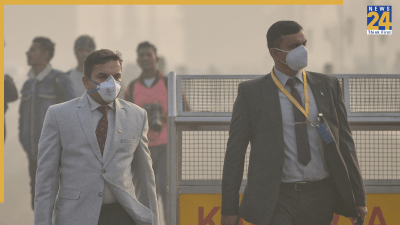The COVID-19 pandemic has had far-reaching consequences, impacting people’s lives in many ways, including their physical health. While the respiratory effects of the virus have received significant attention, there is another health concern that deserves our focus: the risk of heart attacks, especially in individuals who have recovered from COVID-19. As we navigate the post-pandemic era, it’s crucial to be aware of this risk and take necessary precautions.
Understanding the Link Between COVID-19 and Heart Health:
Emerging research has revealed a concerning connection between COVID-19 and heart health. The virus can cause inflammation throughout the body, including the cardiovascular system. This inflammation can lead to a higher risk of blood clots, plaque build-up in the arteries, and even direct damage to the heart muscle.
Furthermore, post-COVID individuals may still experience lingering symptoms, such as fatigue and shortness of breath. These symptoms can make it challenging for them to engage in physical activities or heavy work, inadvertently increasing their risk of heart-related issues.
Read More: Energizing Your Workouts: The Power Of Healthy Snacks
The Risk of Heavy Work:
Heavy physical labor, especially when combined with the aftereffects of COVID-19, can put added stress on the heart. This is particularly true if an individual has not fully recovered from the virus or is experiencing lingering symptoms. The heart has to work harder to pump blood and oxygen to meet the body’s demands during strenuous activities, increasing the risk of a heart attack.
Precautions and Care for Post-COVID Individuals:
Consult a Healthcare Professional: If you’ve had COVID-19 and are planning to engage in heavy work or exercise, it’s crucial to consult with a healthcare professional. They can assess your heart health and provide guidance on safe levels of physical activity.
Gradual Return to Activity: Don’t rush into heavy work or exercise after recovering from COVID-19. Start with light activities and gradually build up your stamina. Listen to your body and pay attention to any warning signs such as chest pain, dizziness, or extreme fatigue.
Maintain a Heart-Healthy Diet: A heart-healthy diet rich in fruits, vegetables, whole grains, lean proteins, and low in saturated fats is essential. This will help manage cholesterol and blood pressure, reducing the risk of heart-related problems.
Monitor Your Symptoms: Keep an eye on any lingering symptoms from COVID-19 and any new signs of heart problems. If you experience chest pain, shortness of breath, or irregular heartbeats, seek medical attention immediately.
Stay Hydrated and Rested: Adequate hydration and rest are crucial for recovery. Dehydration and fatigue can add stress to the heart, so make sure you are well-rested and properly hydrated.
In conclusion, recovering from COVID-19 is a journey that demands careful attention to your health, especially in the context of physical work or exercise. The risk of a heart attack is a valid concern, and post-COVID individuals should prioritize their heart health by consulting healthcare professionals, gradually resuming physical activities, and paying close attention to their bodies. By doing so, we can minimize the risk and ensure a healthier and safer transition to the post-pandemic world.













